Strengthening a Growing Network of Young Conservation Leaders in Serengeti National Park
The network of trainees keeps expanding with participants from Asia and new organizations in a new edition of our global course for young conservation leaders.
Estimated time to read: 5 minutes
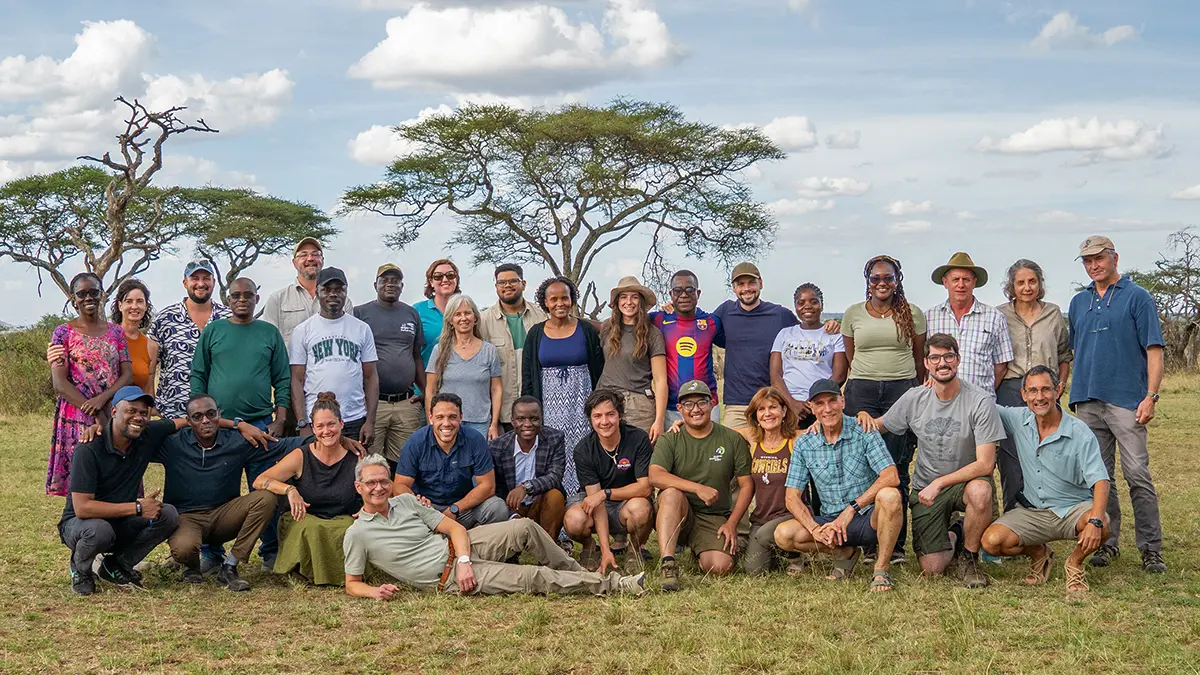
Group photo of participants and trainers united by a shared mission to protect nature.
Our fourth training course was held at Serengeti National Park from 16 to 27 September. This was the third one aimed at global participants who spoke English. After four months of online meetings and group discussions, 20 people met at Seronera station, sited at the heart of this World Heritage Site. The course used field facilities set up by the Frankfurt Zoological Society and was supported by Tanzania National Parks (TANAPA).
Compared to previous global courses, the 2025 edition included two new participants and one speaker from Asia (specifically Indonesia, which is one of the most biodiverse countries in the world). It also included organisations that have not been included in the programme yet, like Leuser Conservation Forum, which helps to protect one of the best conserved rainforest landscapes in Sumatra, Conserve Global, which works in areas that are protected and managed by local communities in Africa, and Tanzania National Parks.
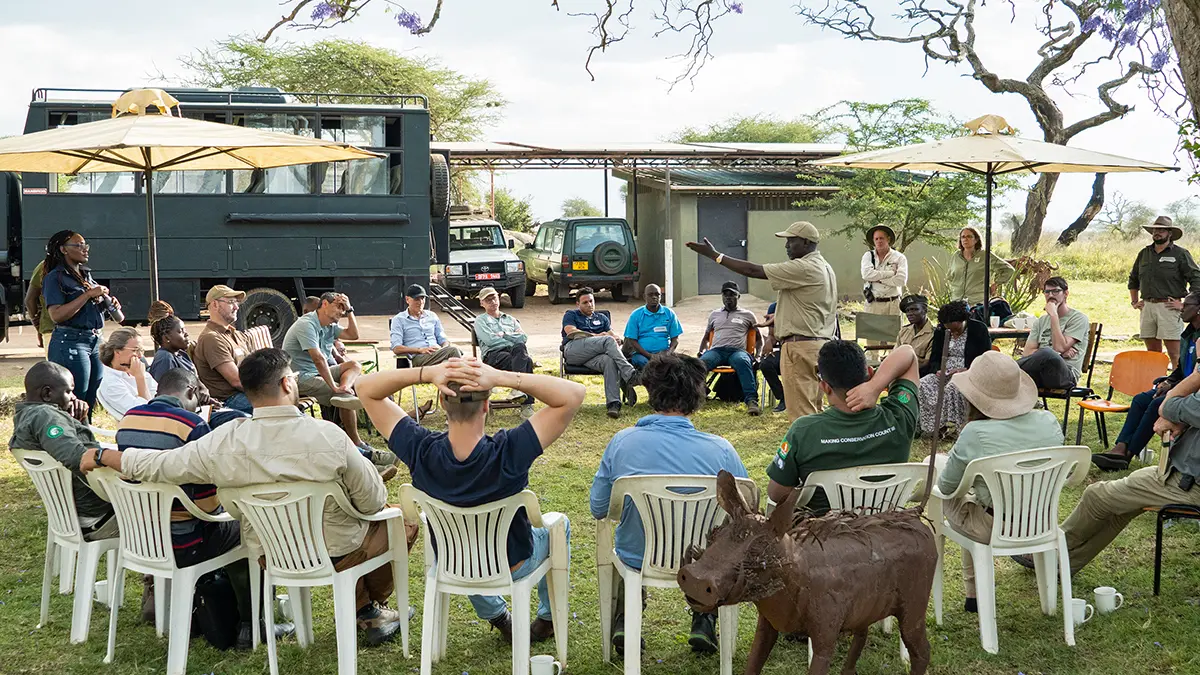
Participants and trainers share experiences at the heart of the savanna.
As in previous courses, this year we invited practitioners with extensive experience in managing conservation teams. As a special guest, we invited Xavier van Leeuwe, coauthor of the highly recommendable book “The human touch: Improving resilience and agility in organizations step by step“. This was the first time we invited a CEO with vast experience in managing high-performance teams but no previous connection with nature conservation. His lectures were really well-received, and he also had productive meetings with many participants. In addition to Xavier and our core team of trainers from previous courses – Jorge, Astrid and Ignacio, we had the opportunity to learn from the life stories and practical advice of Jean Labuschagne (Director for Conservation Development at African Parks), John Kanowski (Chief Science Officer for Australian Wildlife Conservancy), Rudi Putra (founder and strategic advisor of the Leuser Conservation Forum in Sumatra), and Dennis Rentsch and Christof Shenck (Deputy Africa Director and CEO for Frankfurt Zoological Society, respectively).
This year, we were delighted to welcome two participants from the 2023 course. Ian Munyankindi, from Akagera National Park, was invited to speak on the inspiring story of this restored park in Rwanda. As manager of commercial enterprises at Akagera, he shared insights on his current responsibilities and the positive impact of the training programme in his role. Additionally, Ricardo Borges, a Brazilian conservationist from the NGO SPVS (with extensive work in the Atlantic Forest) who was part of the inaugural cohort, volunteered as an assistant to replicate the experience of our courses.
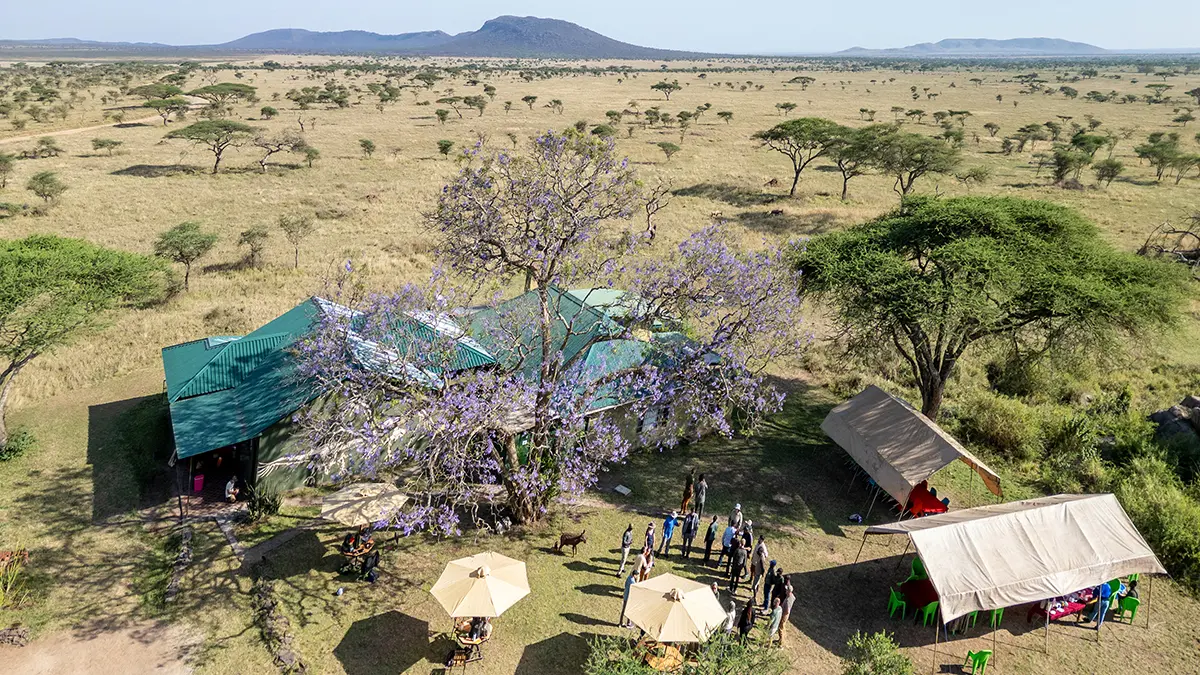
The facilities used for training session, sited in the core of the park.
Aside from the practical lectures, outdoor conversations in a circle, group exercises and game drives, the presence of the Serengeti landscape and its ever-present wildlife created a powerful environment for inspiration, camaraderie and learning. It was really wonderful and invigorating to see how the participants greeted and hugged each other at the beginning of each training day, as they arrived from their accommodation within the park!
As with previous courses, the training ended with a group reflection around the fire at sunset and a celebration of all the days spent together. It felt like it had been many days, but also that they had passed really quickly.
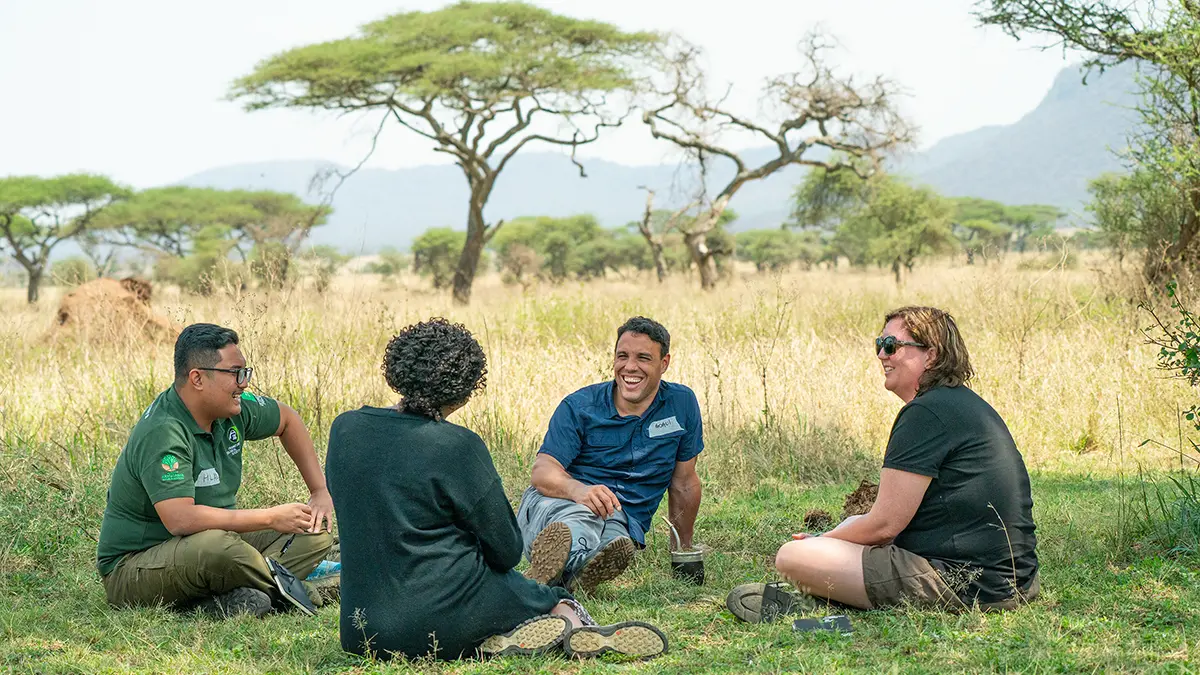
Participants from four continents doing an exercise during the course.
The words of one of the participants reflect the general mood of this year’s course: “The training program was a true life-changing experience for me. The possibility to openly learn and discuss everyday human-related problems and how we can change our attitudes and mindsets to improve our teams and our results was something I haven’t thought about in a long time. I come back to my country with many ideas and practical things to put into practice right away, to work better with my own teams and with the stakeholders we work with. The possibility to listen to experienced practitioners, to learn from their life stories and careers, was a unique opportunity, and even better was to be able to ask open questions and discuss the matters that we care about. And to me, the very best thing about the course was the possibility to build relationships, trust, friendships, and networks with young passionate conservationists from all over the globe. This experience encourages me to keep putting my best every day and to work towards building a strong and united conservation network for our future!”
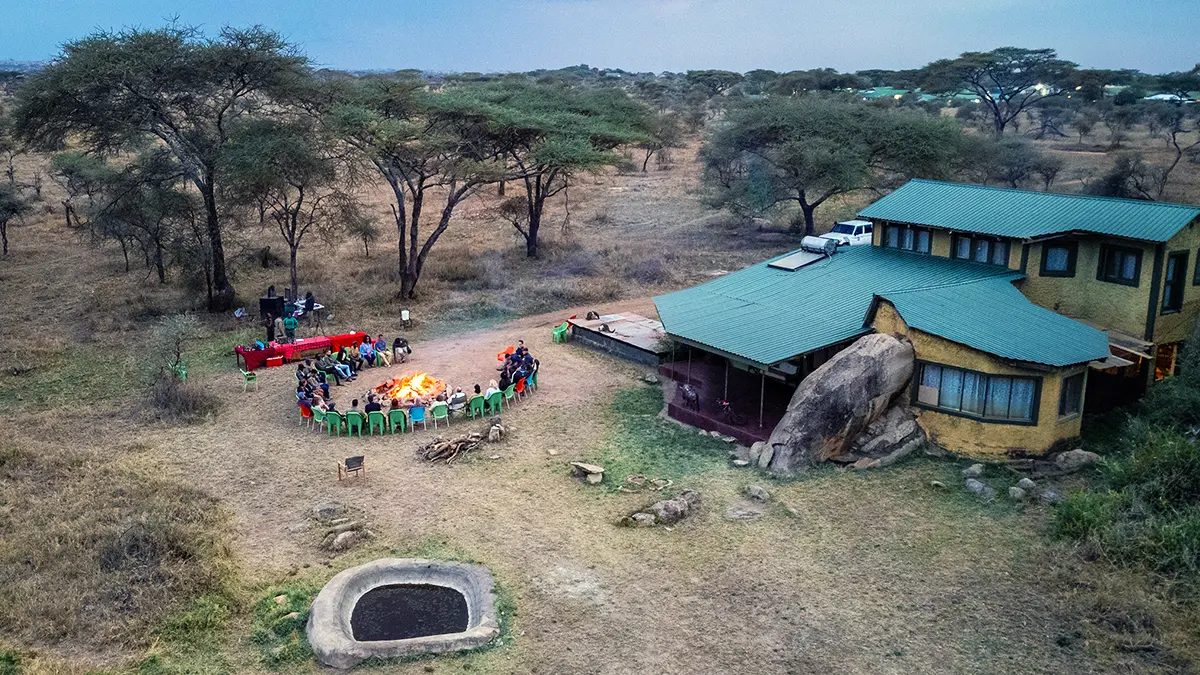
On our last evening in the Serengeti, participants, trainers and FZS staff gathered around the fire to reflect on the impact of the course.
A total of 75 trainees from five continents and 22 countries have now participated in the Effective Conservation Training Initiative. Thanks to a regional course in Portuguese in Brazil and our annual global course in English, which will be held in a different African park, our alumni network will keep growing in 2026.
Text prepared by Ignacio Jiménez.
Photos: Rafa Abuin
Design: Andrés Stubelt
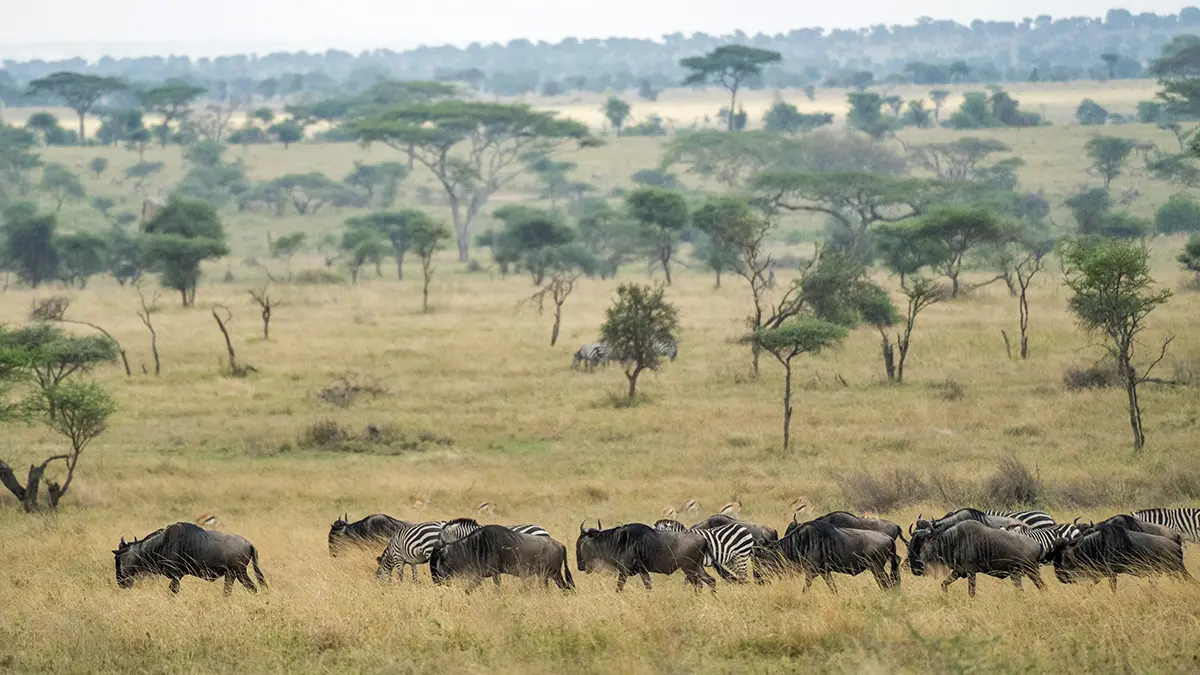
Herds of wildebeest and zebras in Serengeti National Park.
